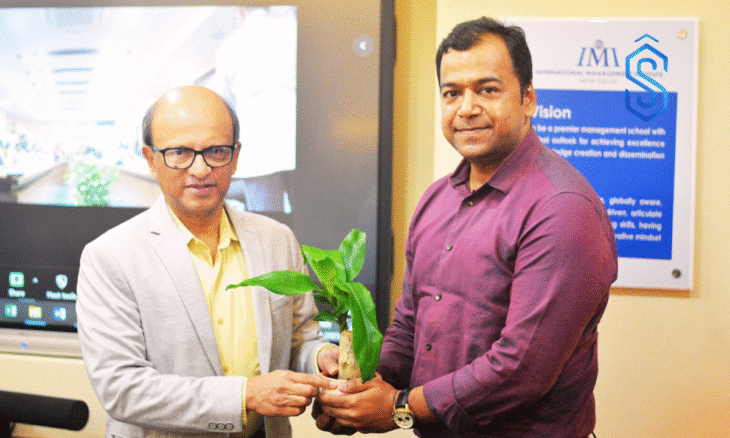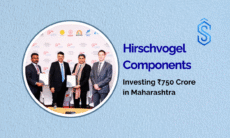New Delhi: IMI Delhi, in collaboration with BML Munjal University and supported by the Indian Council of Social Science Research (ICSSR), recently organized the National Conference on Circular Futures: Innovative Strategies for E-Waste Management and Resource Recovery.
The conference, aligned with Vision Viksit Bharat@2047, brought together leading voices from academia, industry, and policy to chart a roadmap for India’s circular economy.
Circular Futures Conference Highlights Key Industry Insights
The Circular Futures conference featured distinguished speakers, including Mandeep Manocha, Co-Founder & CEO of Cashify; Mayank Sinha, Head of Marketing & D2C Business at Attero Recycling; Sahil Jain, Principal Enterprise Architect at Adobe; Harpreet Kaur Ghai, Vice President at Aspire Impact; and Dr Ruchi Garg, Associate Professor at BML Munjal University.
Also Read: Foundation for MSME Clusters Hosts Workshop on EU Sustainability Rules for Panipat Exporters
The event attracted strong international participation, with more than 55 research papers submitted by scholars from Campbellsville University (US), Vietnam National University, University of Delhi, IGNOU, NITs, and premier management institutes across India.
Research themes covered behavioral and social aspects of e-waste handling, the role of digital technologies in monitoring waste, and technological advancements in recycling.
Panel Discussion: Towards a Circular India
A key highlight was the panel discussion on “Towards a Circular India: The Future of E-Waste Management,” moderated by Dr Pinaki Dasgupta, Professor at IMI Delhi. The discussion highlighted the urgent need for collaboration across technology, policy, and consumer behavior.
- Mandeep Manocha (Cashify): Stressed that most e-waste lies unused in households, underscoring the need for consumer trust in recycling.
- Mayank Sinha (Attero Recycling): Pointed out that formal recycling systems achieve nearly 98% efficiency and must be scaled urgently.
- Sahil Jain (Adobe): Advocated for AI-driven models and digital passports to enhance waste traceability.
- Harpreet Kaur Ghai (Aspire Impact): Emphasized that e-waste can be converted into economic value when supported by ESG frameworks.
- Dr Nitika Sharma (IMI Delhi): Concluded that e-waste is both a technical and societal challenge, requiring a mindset shift from waste to wealth.
Also Read: CSIR-CRRI Grants Steel Slag Road Technology License to ArcelorMittal Nippon Steel India
Key Findings and Recommendations from Circular Futures
Discussions revealed that 85% of devices remain idle at homes, while 60% of e-waste is processed by the informal sector with limited efficiency. In contrast, the formal sector achieves near-total recycling efficiency but operates at a smaller scale.
The national conference on circular futures recommended scaling formal recycling capacity, integrating AI and blockchain for tracking, encouraging consumer empowerment through repair and reuse, fostering green entrepreneurship, and strengthening policies such as Extended Producer Responsibility (EPR) and Right to Repair.
Dr Himadri Das, Director General of IMI Delhi, said, “The days of the linear economy are long gone. To build a sustainable future, we must redesign systems to minimize waste and maximize resource recovery. Moving from ‘take, make, dispose’ to a circular economy is no longer optional—it is imperative.”






